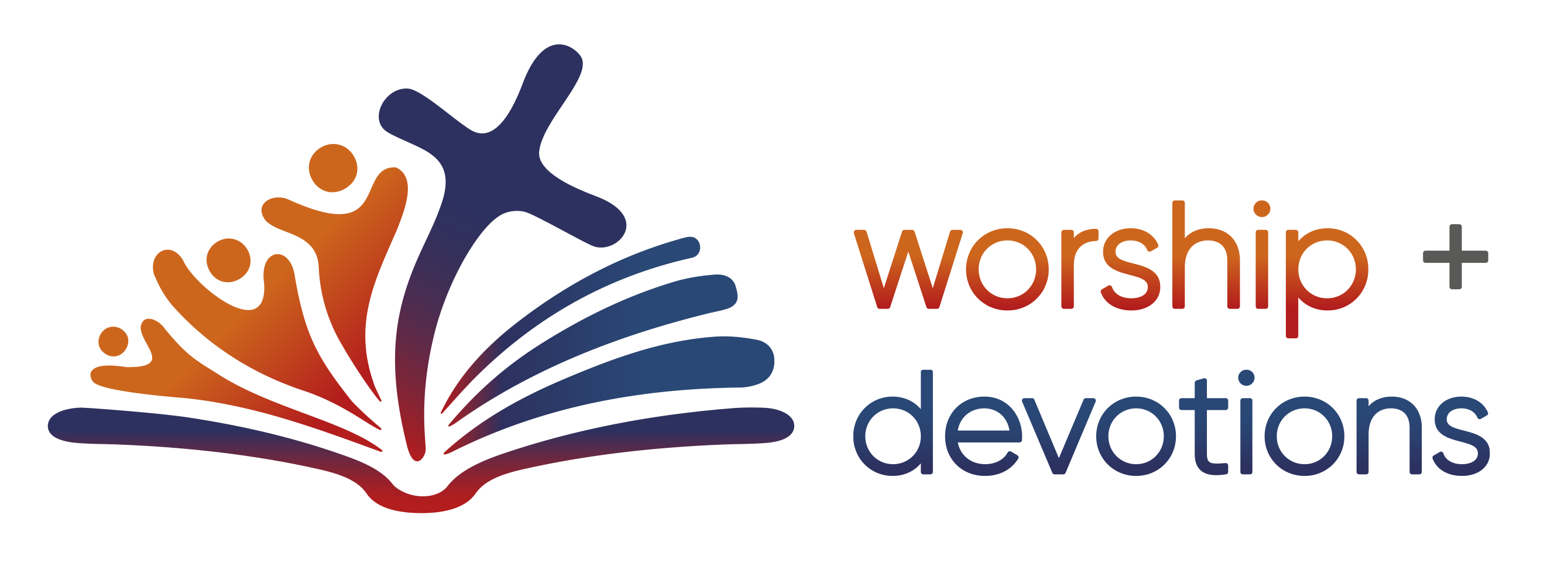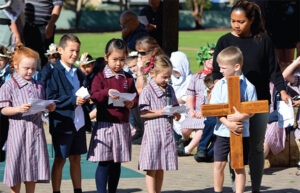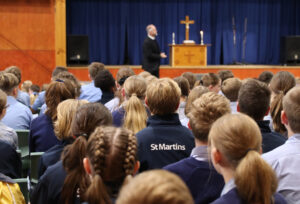LEA Guide to Worship
Lutheran schools and early childhood services, as part of the mission of the Lutheran church, are communities of worship and service, sharing and living the good news of Jesus Christ.
GROWING DEEP: OUR FOUNDATION
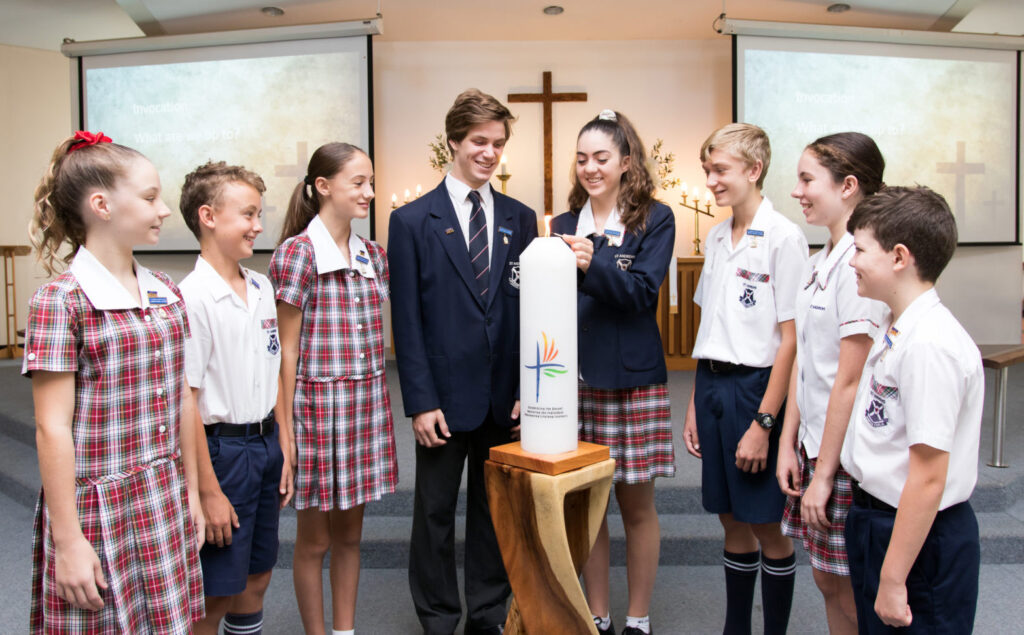
Lutheran schools and early childhood services have regular worship services and other faith practices as a central part of our mission, because they are the way we meet Jesus, form a relationship with God and are built up and shaped in the faith.
Lutheran schools set aside special times to worship through:
- Staff devotions, retreats, and worship
- Classroom worship – class devotions, grace prior to lunch, blessing at the end of the day
- School worship services
- School and congregational worship – some schools have special worship services where school families are invited to attend the congregation(s) connected to the school.
The faith backgrounds of students and staff
can be diverse and therefore some aspects of worship are different from those of local church communities. Worship in the Lutheran education context is conducted in ways that are accessible to all students.
The school pastor, staff or students may lead whole school worship and classroom teachers lead devotions for their class.
What is worship?
Worship is an encounter with Christ.
Jesus said that when two or more are gathered in His name, God is present. When we hear the Bible and have it explained to us, we are hearing God speak. When we pray for our own needs, for the world and for other people, God listens. When we say sorry to God for our sins, God forgives us.
Because God is so good to us, we praise him and give him thanks for everything he does for us. We worship often so God can serve us, helping us to grow in faith and love towards each other.
This guide will focus on School Worship.

What do Lutherans believe about worship?
God is the centre of worship.
Lutherans believe that worship is not so much about what we do, but about what God does for us. We simply respond in prayer and praise to the God who comes to serve us – that’s why we call it a worship service!Our focus is on Jesus.
Worship in our learning communities points us to Jesus, who suffered and died for the sins of the world. Sin is more than doing bad things – it is a state of disconnection from God, where our relationship with our maker has broken down. All people make mistakes and go against God’s plan for us. This brokenness affects the earth and everything in it. Nothing we do can fix this. But God loves us and wants to save us. He sent his son Jesus into the world to restore our relationship with him. Jesus, who did not sin, died on the cross to take the punishment we deserve. Jesus defeated death and the devil, and was resurrected (came alive again). Because Jesus paid the price for our sin, God shows us his grace – undeserved forgiveness and acceptance – when we are sorry for our mistakes and have faith in him. Because of Jesus’ victory over death, Christians are given the gift of eternal life in heaven with God. It also means that while we still live in a broken world, we can have hope and healing through faith in Christ. Our relationship with God is restored, and through the Holy Spirit we are strengthened in our faith. We can ask God to help us and be filled with his peace.
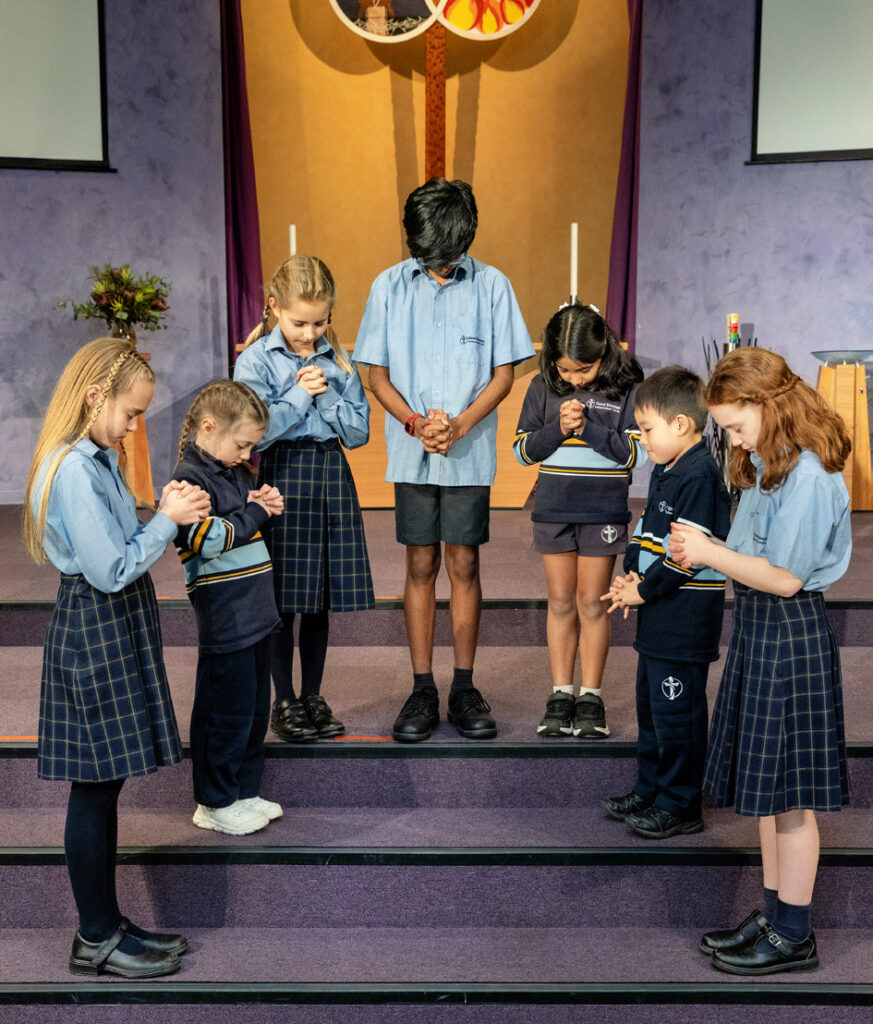
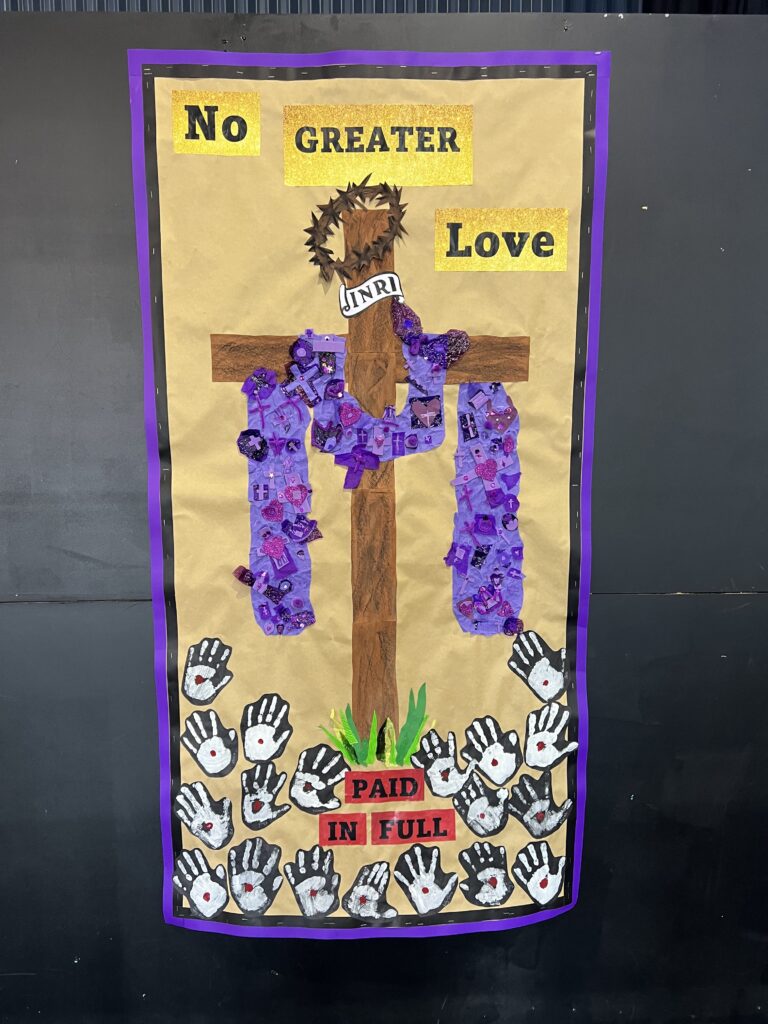
We are saved by grace, through faith
Central to Lutheran teaching is the belief that God is the only source of our salvation, through his grace. Salvation means being saved from death and condemnation. This is not something we can earn or achieve – it is a free gift to everyone who believes and is baptised in His name. All we need is faith. This understanding is why our emphasis in worship is not on our own actions, but on what God does for us. We need to be careful not to give people the impression that they have to earn their way to heaven, or that the harder they work or perform the holier they are.Worship is based on the Word.
The Bible is God’s Word, written by people whom God inspired in different places and times. God communicates with people through the Bible, progressively revealing himself and his plan for salvation through Jesus and his will for people. Our faith comes from hearing the Word of God. That’s why it’s important that every worship service includes Bible readings.We worship together
When two or more people gather together in Jesus’ name, Jesus promises to be present with his people in a unique way. In the public gathering of God’s people, we meet Jesus and receive his gifts of forgiveness, hope and life. We meet with others who need God’s gracious help.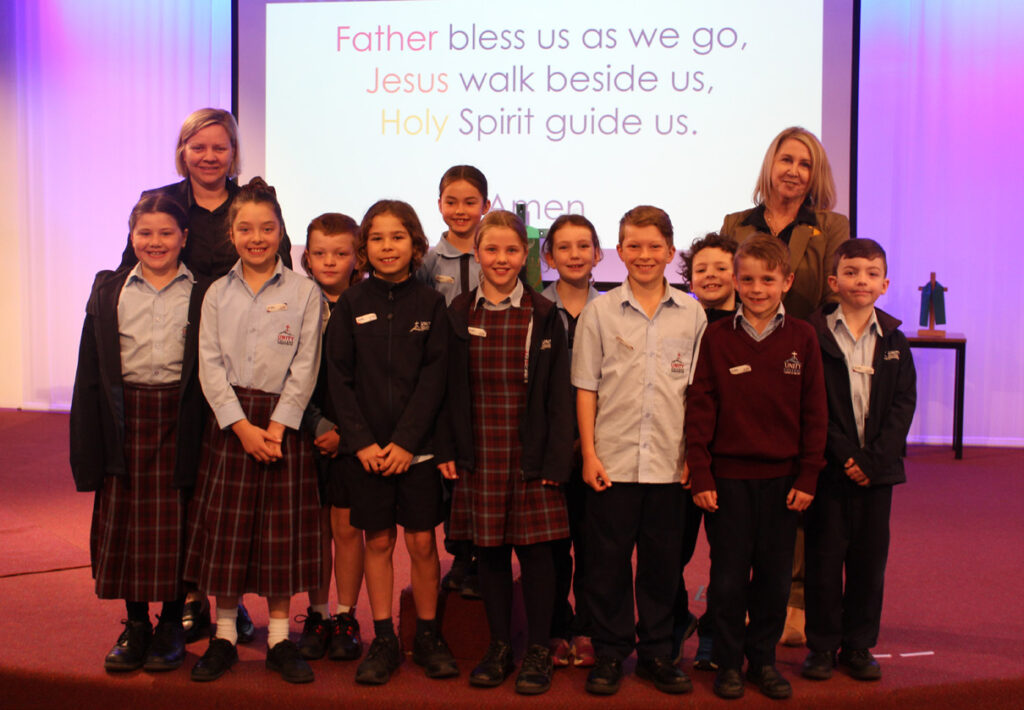
What does worship look like?
Worship can be seen as a constant flow between preparing to encounter Jesus, receiving the blessings he gives us and responding in praise and thanksgiving. In congregational worship, we focus on the sacraments of the Word and Holy Communion. In learning communities, the focus is on God’s Word.
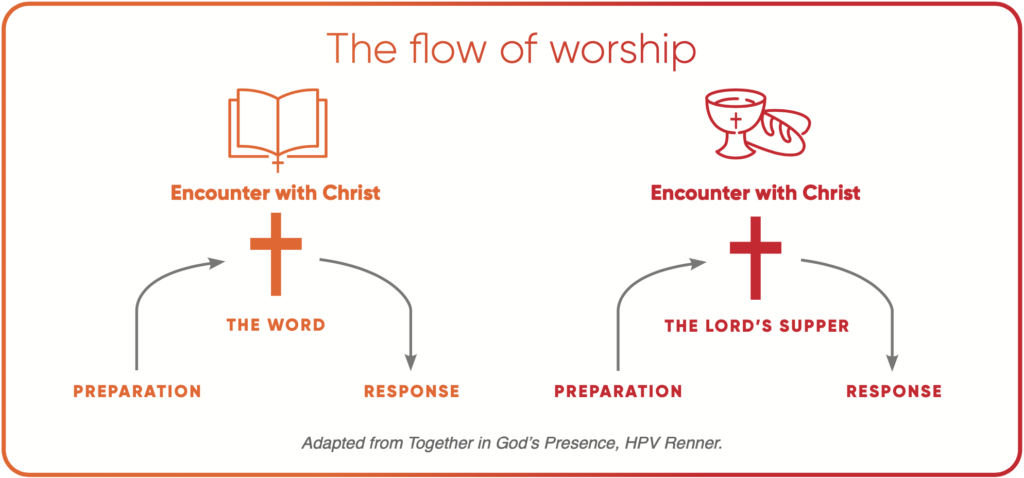

What is the difference between school worship and congregational worship?
School worship and congregational worship serve the same purpose – to listen to and receive from God and offer him our praise and thanksgiving – but they are very different in several ways.
In congregations, we assume that people already have some faith, and that they are participating voluntarily. Many members of the congregation have been baptised and have at least some level of Bible literacy. Most will be familiar with the patterns of worship.
In schools, none of these assumptions can be made. Attendance at worship is compulsory, even though many students may not have a faith background, and some students will come from non-Christian households. Not all Christian students will be Lutheran, and even those who are nominally Lutheran may have limited exposure to worship. The same may be true for staff in the school.
What this means in practical terms is that imposing congregational-style worship in a learning community may force people to act against their consciences or confess that which they do not believe.
As a result, we adapt worship in schools so that corporate acts such as the confession of sins and confession of faith are not compulsory. If included in a service, they should be presented in a way that allows for choice in responding. Parts of the service such as responsive Psalms or prayers should be offered in a way that allows for students to listen but not respond if they choose.
Biblical literacy cannot be assumed in a learning community. Worship in the school context must be done in a way which is accessible to students. It should be conducted in a language and style which communicates the gospel to the lives of students.
It is important to provide for a variety of expressions of worship as God works differently in different people at different times.
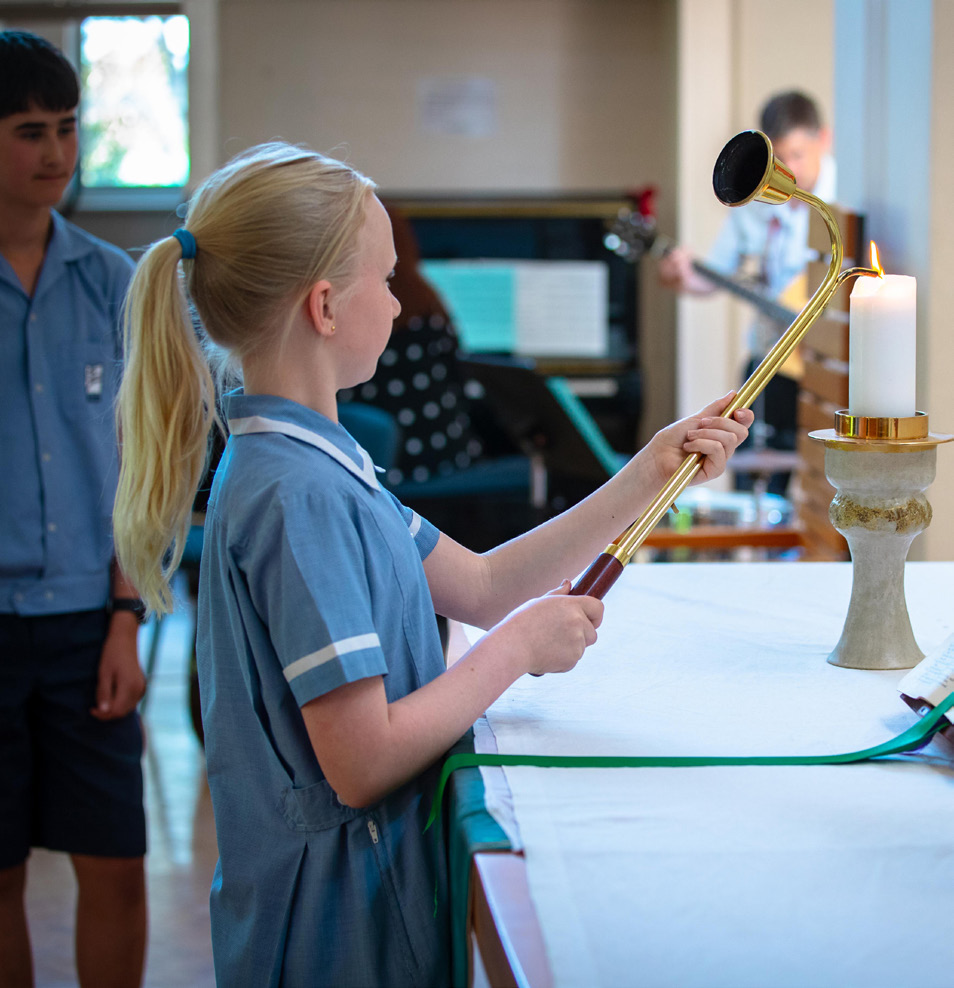
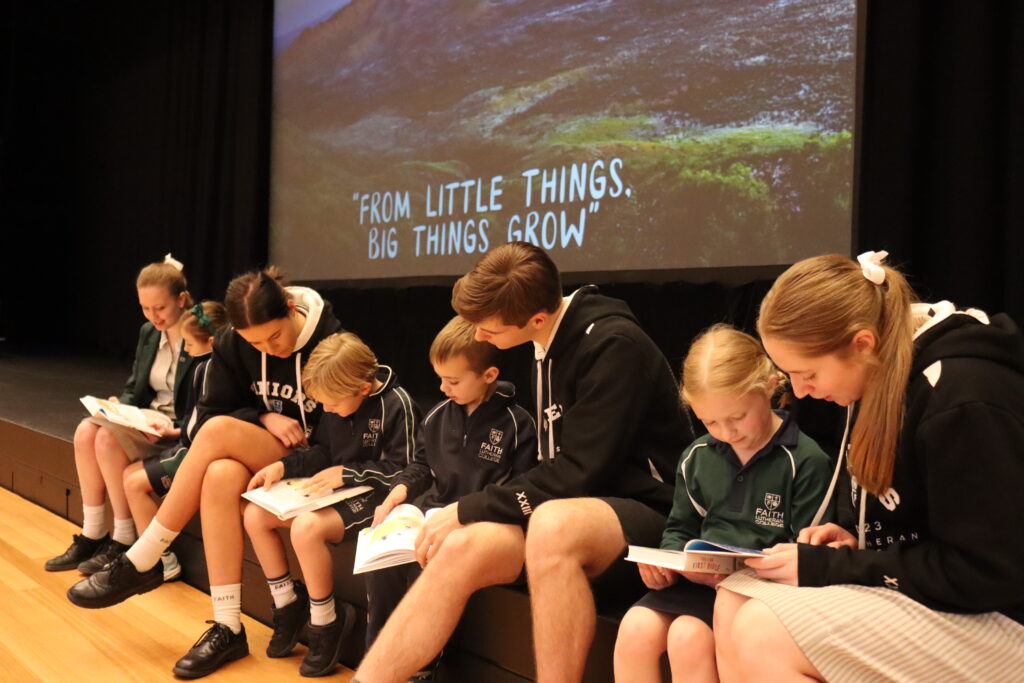

Baptism
Baptism is God’s commitment to people through water and Word for the sake of salvation. It happens in the context of the people of God who gather together to grow in faith and love. This is usually seen as a ministry of congregations.
Although baptisms do not regularly occur in the school worship/chapel setting, if members of the learning community wish to be baptised, schools should work with the closest congregation to enable both connection and continuity for faithful living if at all possible. Inviting other members of the school community to the baptism would be a fantastic outreach.
For more detailed information, please refer to the Lutheran Church of Australia Statement on School Worship.
Holy Communion
Organising School Worship
What to include

God gathers us in worship (Invocation). Begin the service in the name of the Lord (the Father, Son and Holy Spirit).
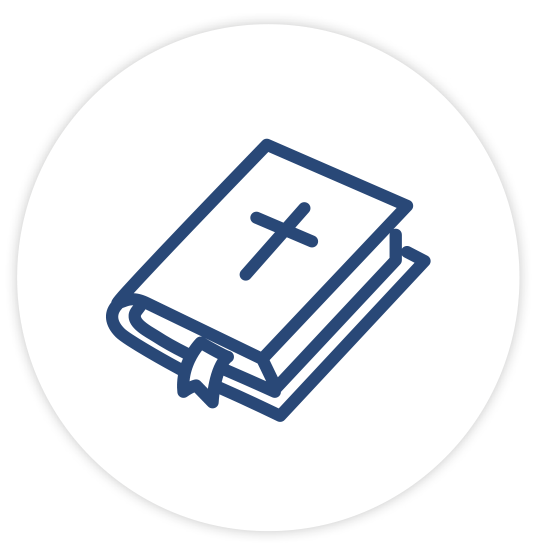
Gospel message/response based on the biblical narrative - This should be appropriate to the age of the students and may be a simple response by the students to the Bible story or a word from the school pastor, staff or students. It would be wise for the worship coordinator/chaplain/school pastor to check the content of the message to ensure that the presenter has understood the scripture.

Prayers of request and thanks - for students, the school and the world. The Lord’s Prayer could also be included.
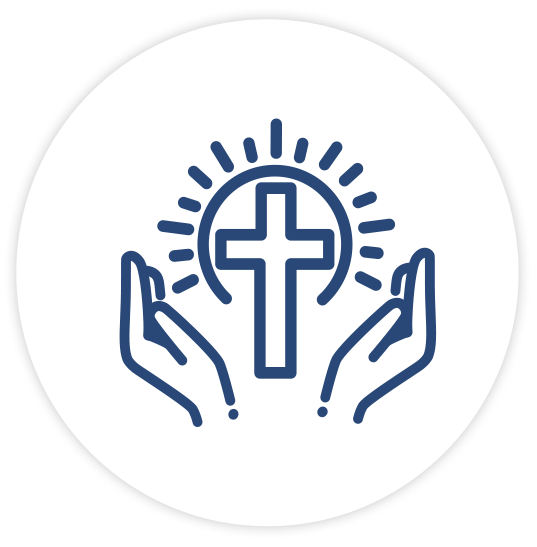
Blessing – the pastor or leader can bless the students and staff or encourage people to bless each other.
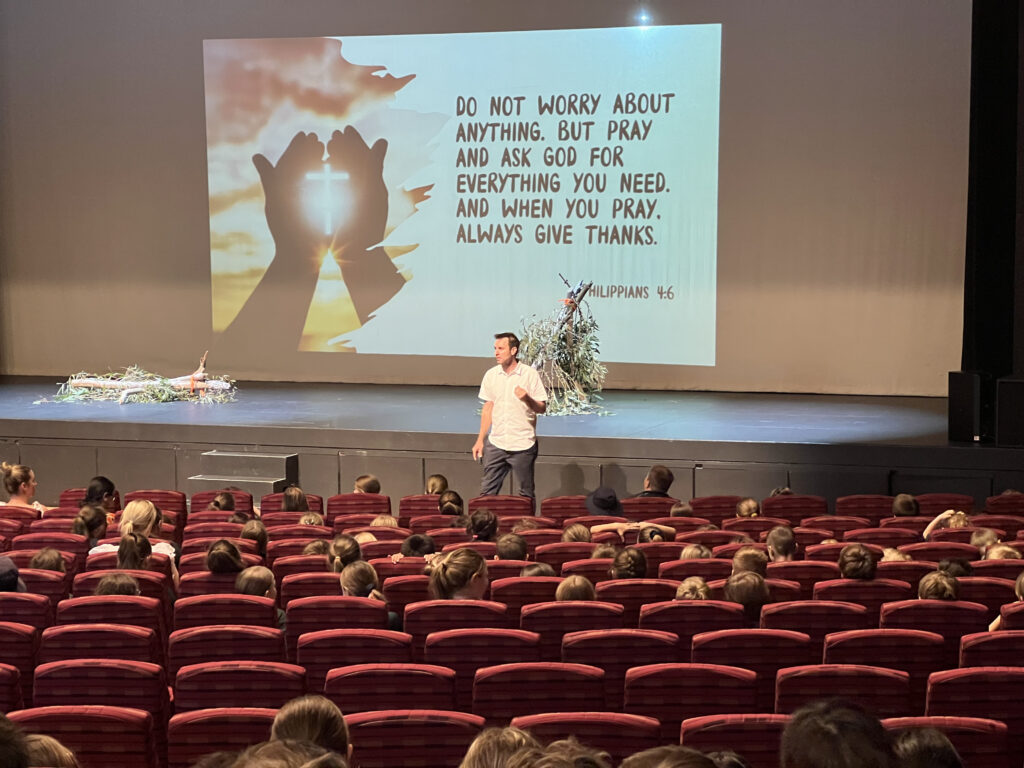
You could also include:
- An object lesson or thought starter to engage students.
- A short prayer before the readings to prepare students to listen to God.
- Singing – music is a great way to express our praise and thanks to God, and to reinforce the message of the service. Songs can be included at any point in worship.
- Creative responses to the reading/message for the day including dance, drama, a PPT display of student art etc.
- Group silence for meditation and contemplation can be very powerful.
- Appropriate ritual acts (eg candles, signing of the cross for blessing etc)
What to be careful about
Students can be invited to be involved in the following elements but they should not be compelled to participate, as a conflict of conscience may arise.- Confession of sins
- Confession of
- Responsive prayers
It is best to avoid
- Student or staff testimonies which may reveal too much about an individual’s struggles, making them vulnerable, or which create pressure for others to testify when they are not ready.
- ‘Altar calls’ or similar calls for commitment.
